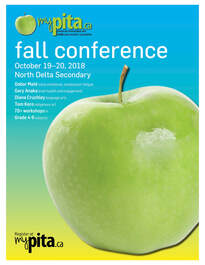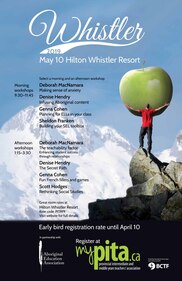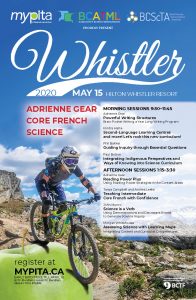Professional Development
Popard Workshop and NCCP Rowing
POPARD (Provincial Outreach Program for Autism and Related Disorders)
In February 2018, I attended a POPARD Workshop that aided teachers in dealing with challenging behaviours in the classroom. It provided basic knowledge about behaviour and possible underlying causes, along with strategies for preventing and managing such behaviours. Some of the learning outcomes, as listed by POPARD, are as follows:
- Define behaviour and challenging behaviour, and develop operational definitions of behaviour
- Identify the different functions that behaviours serve, and explain why it is important to determine the function prior to intervention
- Define replacement behaviours and describe how to select one to teach
- Discriminate between punishment and extinction, and explain the pitfalls of using punishment procedures
Rowing – NCCP Trained Learn to Row Coach
Prior to coaching the Junior Athletes of the South Cariboo Rowing Club, I was required to complete a Learn to Row training workshop, as well as the Make Ethical Decisions Online Evaluation (certificate is attached with the above link).
As a competitive rower, I found that taking a course that helped me with teaching and coaching provided an excellent perspective from that of a learner. It gave me more confidence with my own rowing as well as the coaching of my junior athletes. The training also provided me with a greater knowledge of safety and injury prevention in sport, especially for young people.
Conferences: Provincial Intermediate Teachers Association
PITA Conference, Delta British Columbia 2018

PITA Conferences provide a wealth of information for both new and experienced teachers. My first conference was in the Fall of 2019. I attended two sessions by Diana Cruchley: “The Power of Extreme Writing! Creating eager and fluent writers”, and “Are You Listening? Critical thinking in the age of persuasion.”
The first session provided an incredible collection of writing prompts and ideas to encourage students to write and build their writing stamina. The second session was one of the most valuable sessions that I have attended so far. It aligned with the new BC Curriculum, supporting the critical thinking process. I used information from this (as well as the first) session to work with my students. A section of the “Are You Listening?” session provided the foundation for my first lesson plan to teach listening skills, and has become a staple in my teacher toolbox for future classes.
PITA Whistler Conference 2019

The sessions of this conference were beneficial for infusing First Nations content into the classroom. The first session, by Denise Hendry, provided us with an extreme amount of First Nations resources for students from Kindergarten through grade twelve. We each chose a resource book and then shared how we would use it in a classroom. Our facilitator also provided how she used each of the resources. She then supplied us with many online resources to use for infusing Aboriginal content in the classroom.
The second session covered many fascinating aspects of revisiting Social Studies topics with references to the new British Columbia curriculum.
PITA Whistler Conference 2020

(the above is a link to the conference session details)
I will be attending this conference in May 2020.
The two sessions I am registered to attend are:
- Paul Britton, Integrating Indigenous Perspectives and Ways of Knowing into a Science Curriculum
- John Munro, Science is a Verb
I am excited to learn new and interesting ways to make the Science curriculum engaging for all students! I will report further on these sessions after I attend the conference in May!
**Update: This conference has been postponed until May 2021. I am still on the registration list to attend.